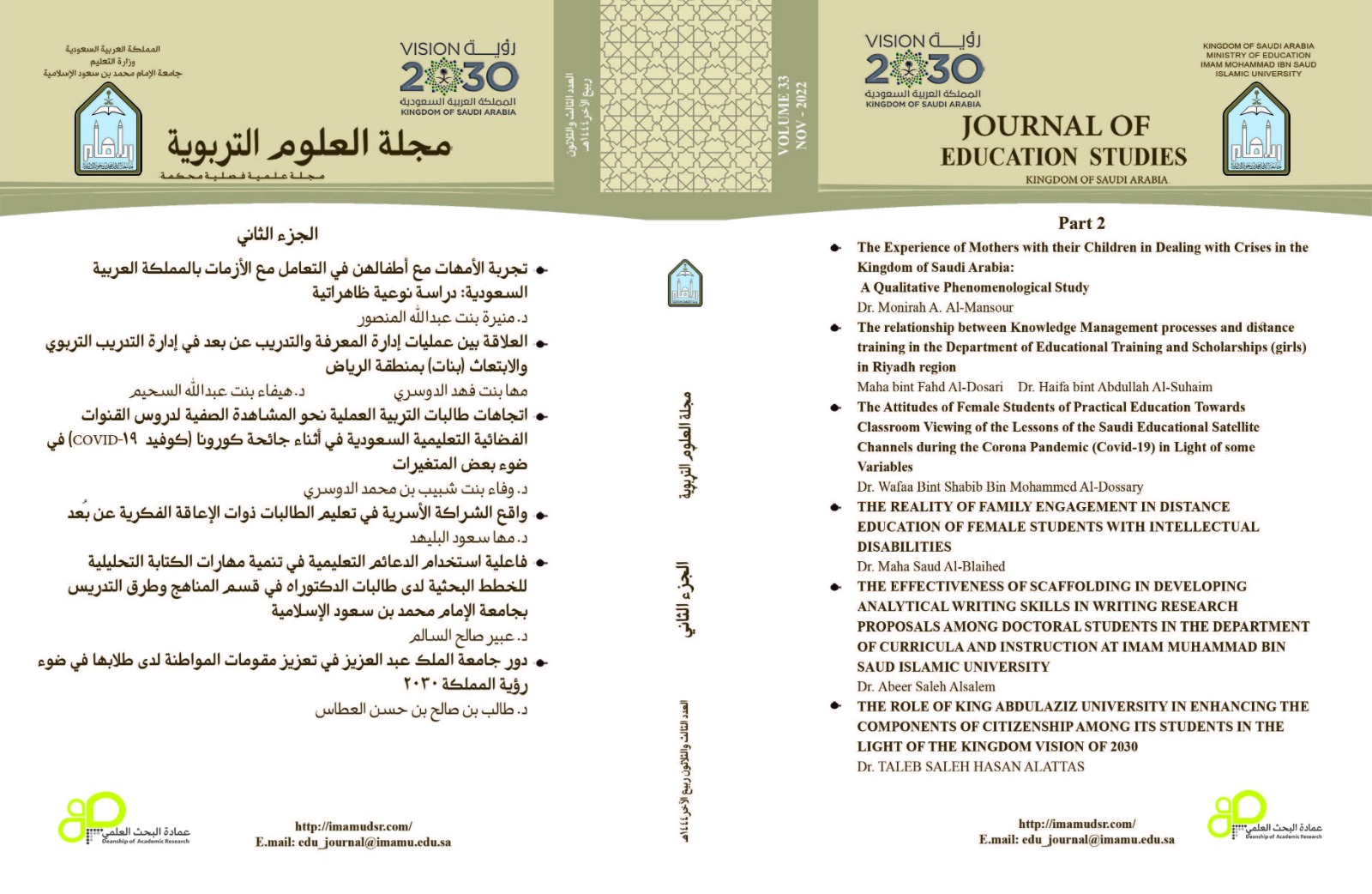The effectiveness of scaffolding in developing analytical writing skills in writing research proposals among doctoral students in the department of curricula and instruction at Imam Muhammad bin Saud Islamic University
Keywords:
Scaffolding, Analytical writing skills of writing research proposals, Curriculum and instruction departmentAbstract
The present study aimed to investigate the effectiveness of scaffolding in developing analytical writing skills in writing research proposals among doctoral students in the department of curricula and instruction at Imam Muhammad bin Saud Islamic University. Through intentional sampling, 21 students participated in this study as one experimental group, which included all first-level doctoral students in the curriculum and instruction department. The research intervention was limited to the educational research curriculum course, which was reviewed in the light of instructional scaffolding principles. The research tools included an analytical writing test, which is based on Marzano’s analytical writing skills and its indicators (conformity, classification, error analysis, generalization, and selection), and a writing scoring rubric. The writing test was applied after ensuring its validity and reliability. The data of the study were processed using the t-test for two related samples. The results of the study showed that teaching the educational research curriculum course using scaffolding is effective in developing students’ analytical writing skills, as represented in writing research proposals, in the total score of the test, and in all the sub-skills constituting it. Based on this main finding, the study reached a set of recommendations, the most important of which is the need to pay more attention to meaning-based learning and a deep understanding of the course material. This can be attained through adopting a student-centered teaching approach and avoiding memorization, and rote learning.




